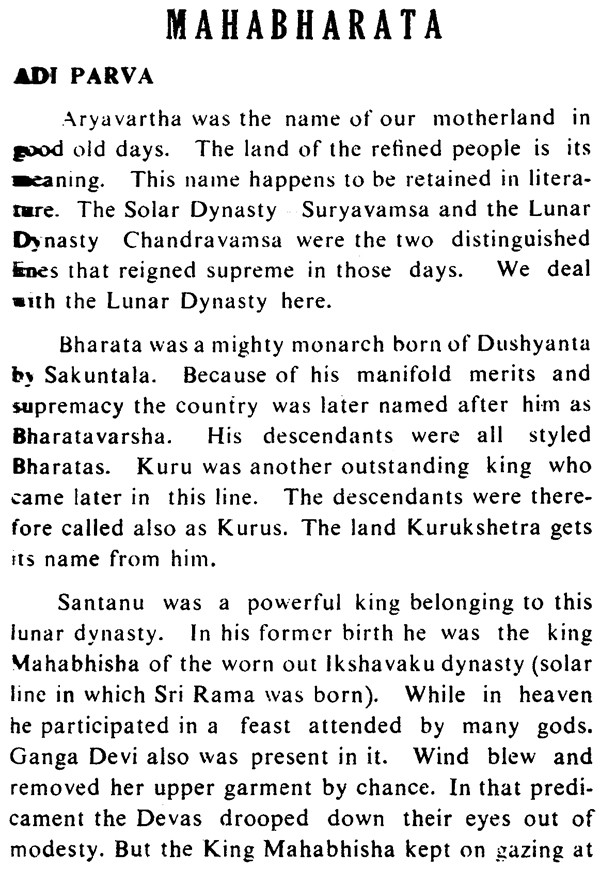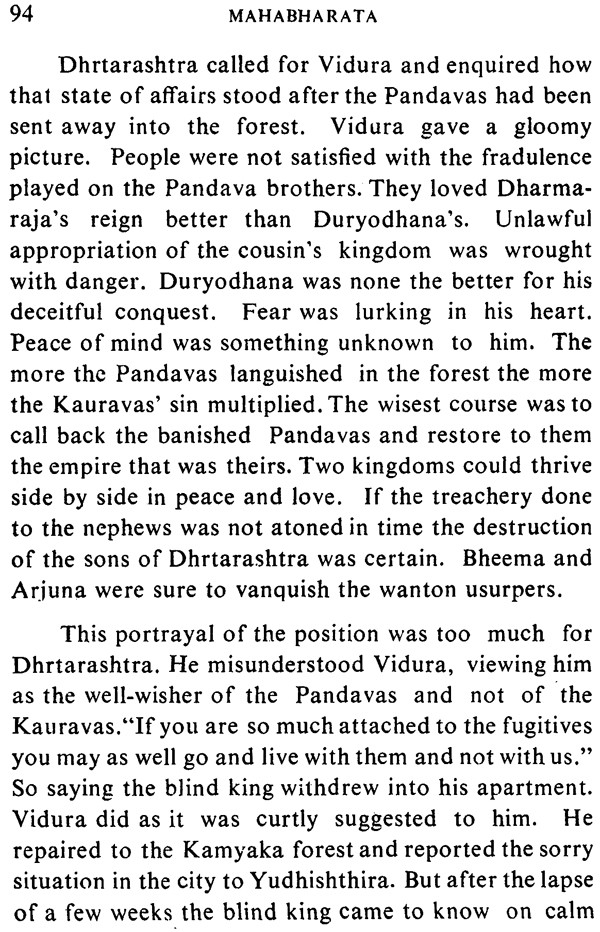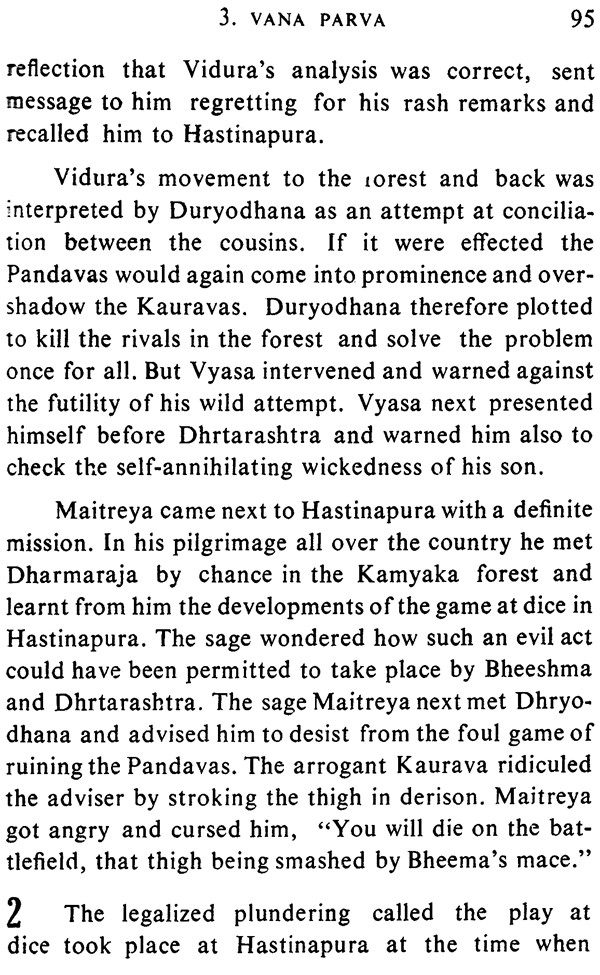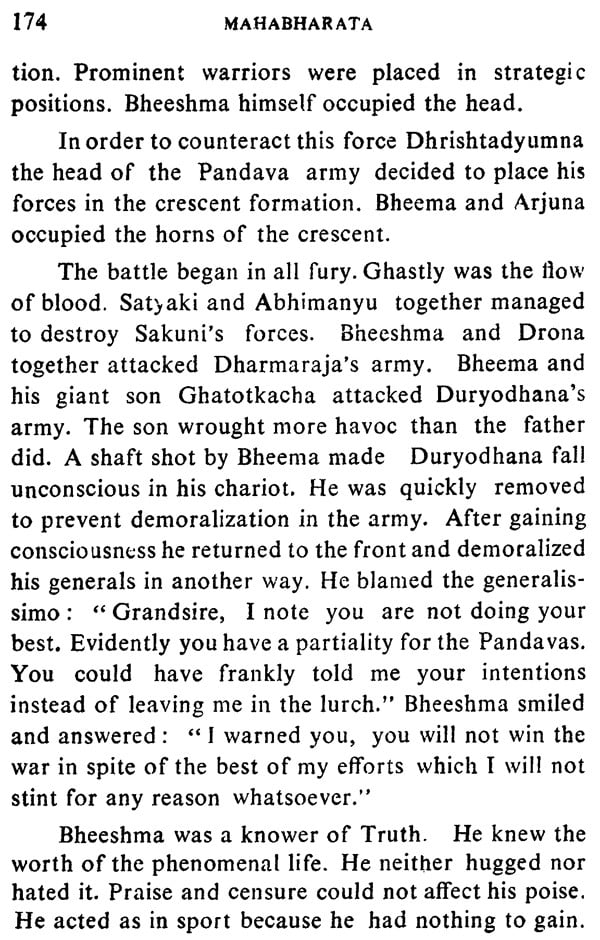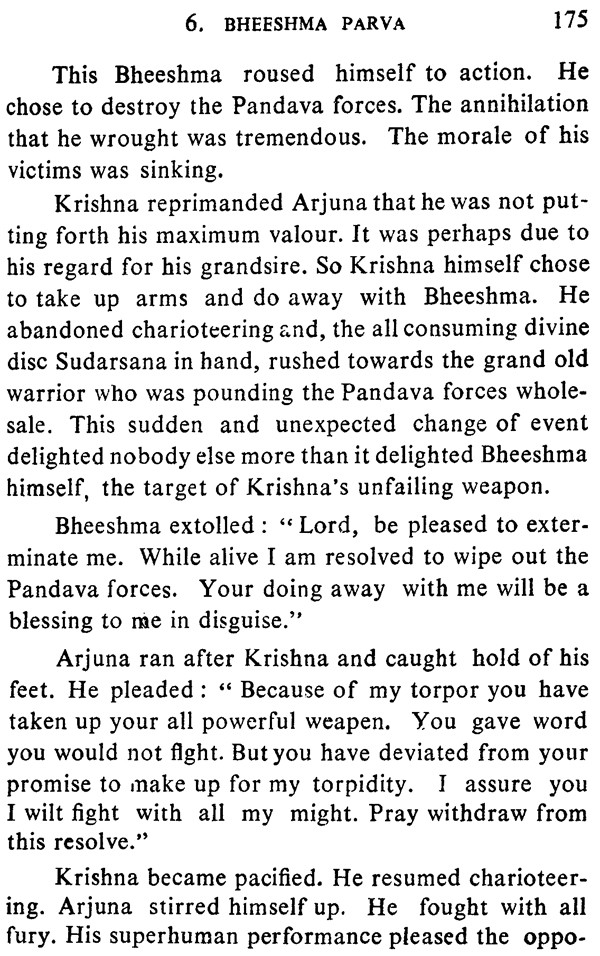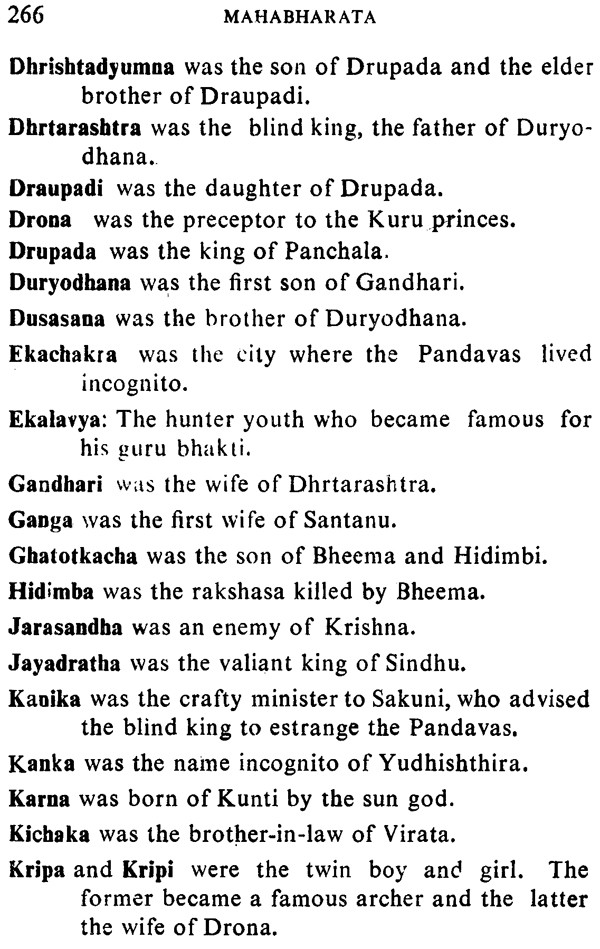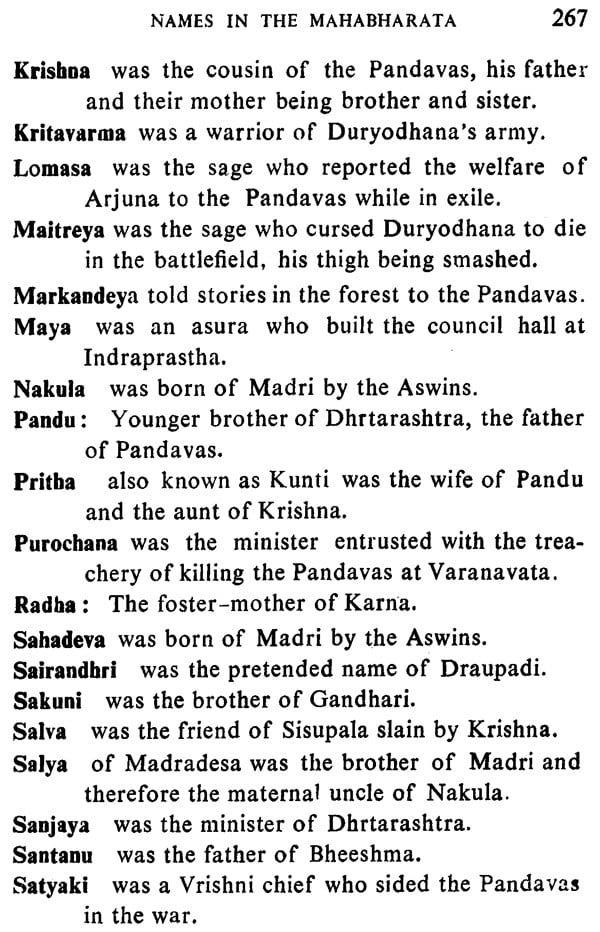
Mahabharata
Book Specification
| Item Code: | NBZ723 |
| Author: | Chidbhavananda |
| Publisher: | Sri Ramakrishna Tapovanam, Tirupparaitturai |
| Language: | English |
| Edition: | 2015 |
| ISBN: | 8180851532 |
| Pages: | 268 |
| Cover: | PAPERBACK |
| Other Details | 7.00 X 5.00 inch |
| Weight | 200 gm |
Book Description
For centuries together Mahabharata has been popular not only all over India but in foreign countries also. Making reference to the characters and codes in this book is a mark of erudition. From the fifth century B. C. saints, scholars, poets and dramatists have quoted copiously from it. In the second century B. C. a Greek envoy referred to precepts culled from this epic. In the sixth century A. D. the whole poem was recited in temples in Cambodia. In the following century the Turks of Mongolia read thrilling episodes from this book translated into their tongue. The people of Java translated the book into their language before the end of the tenth century. The Americans and the Russians are drawn to this book in the present century.
This book is a sastra or manual of ethics. It is a social and political philosophy. It deals with dharma, artha, kama and moksha, the four aims of the life. Moral, social and religious duties are dharma. Earthly prosperity and wealth is artha. Pleasures pertaining to mundane life is kama. Emancipation self from the meshes of the world is moksha. It extols humanity as the highest manifestation of the divinity.
Book's Contents and Sample Pages

